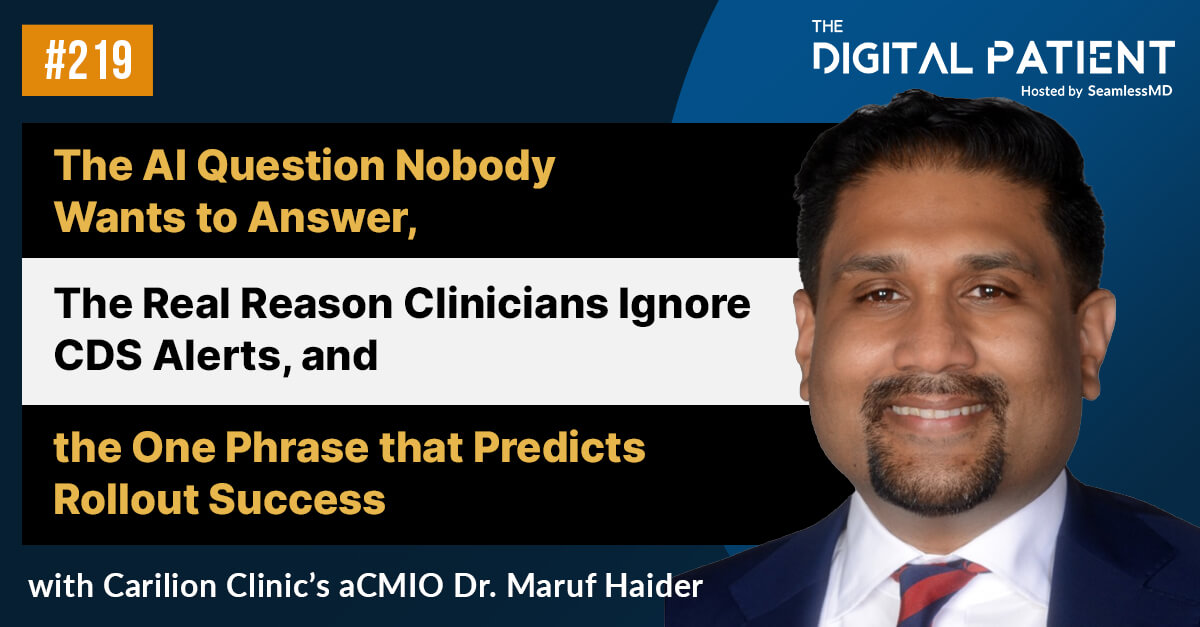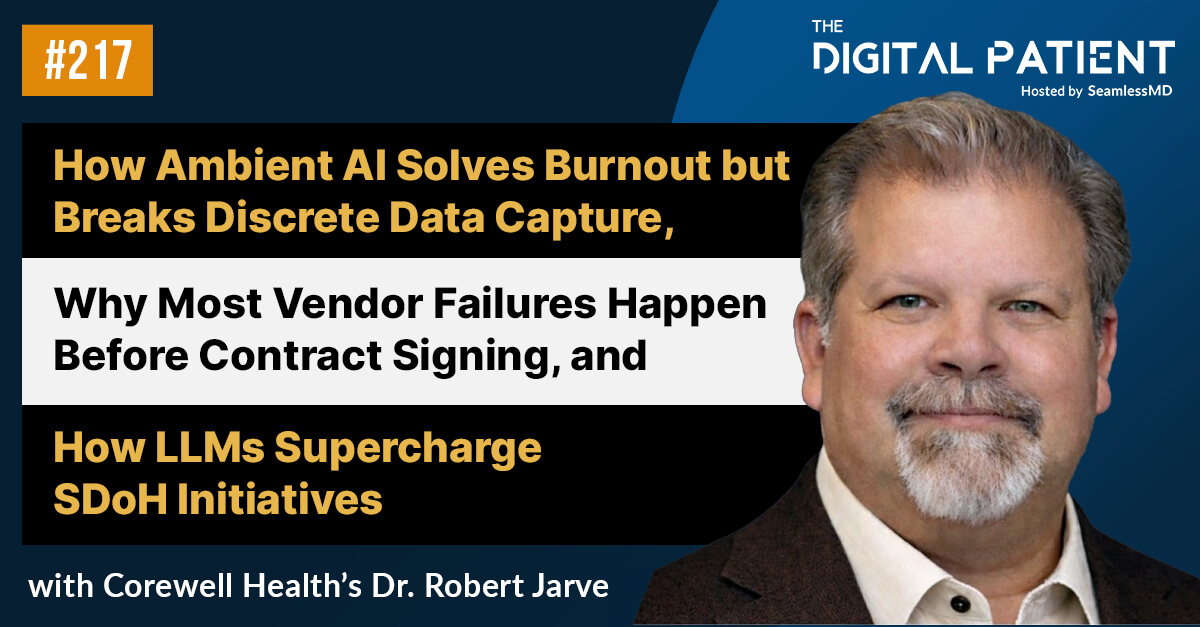Subscribe on: RSS | SPOTIFY | APPLE PODCAST | GOOGLE | BREAKER | ANCHOR
On this episode of "The Digital Patient" podcast, hosts Alan Sardana & Dr. Joshua Liu speak with Dr. Douglas Slakey, Serial Chief of Surgery, about "Creating a Team of Teams to Rapidly Implement ERAS Across a Health System, Learning from the Airline Industry to Optimize Healthcare Reliability, Empowering People to do the Right Thing By Making it Easy, and more..." Click the play button to listen or read the show notes below.
Audio:
Video:
Guest(s):
- Dr. Douglas Slakey (@DougSlakey), Serial Chief of Surgery
- Dr. Joshua Liu (@joshuapliu), Co-founder & CEO at SeamlessMD
Episode 93 - Show Notes:
[00:00] Introducing Dr. Douglas Slakey, Serial Chief of Surgery and healthcare thought leader;
[02:00] Why Dr. Slakey pursued a degree in history prior to medicine as he believes history and its relationship to socioeconomic realities can help in delivering better healthcare by relating to patients as human beings rather than just diagnoses or pathologies;
[05:35] Why Dr. Slakey believes understanding historical context allows learners to see how innovation occurred and how it can be stifled today, empowering them to think differently and come up with new approaches to healthcare;
[10:53] Why Dr. Slakey draws inspiration from high reliability industries like the airline industry because it is a high reliability industry that manages reliability overtime and adapts to new technology;
[12:11] Why Dr. Slakey established longitudinal programs in emerging market countries for training teams to increase efficiency and expand services such as kidney transplant centers to regions previously reliant on mission-service;
[16:00] Why Dr. Slakey believes the pursuit of optimal healthcare quality and safety is challenged primarily by three barriers:
- Payment models, which would need to incorporate safety and high reliability metrics to define success from a global perspective;
- Access and time for healthcare providers and teams to continue lifelong learning and effective team training; and
- Timeliness and transparency in data reporting
[20:46] How linear approaches to optimizing efficiency such as Lean or Six Sigma, which work in other industries, have limitations in healthcare due to the complex and adaptive nature of healthcare, and why aligning resources with patient needs in a timely manner for effective decision-making is of utmost importance;
[25:22] How Dr. Slakey and his team at Advocate Aurora Health implemented ERAS (dubbed the STAR initiative) – across 13 service lines – by empowering a team of teams, involving administration, primary care, nursing, surgeons, and other physicians, to generate enthusiasm and support for the process, and by making it easy for providers to “do the right thing” such as enabling straightforward EHR order sets and ensuring collected data was tied to outcomes;
[33:59] How perverse incentives can lead to a reduced focus on quality and reliability and why Dr. Slakey advocates for continuous quality improvement to avoid complacency;
[39:05] Why Dr. Slakey has become increasingly passionate about process flow and identifying process flow disruptors in healthcare delivery, so that health systems can better align resources with patient needs and anticipate those needs to optimize patient experience, outcomes, and costs;
[45:10] How acknowledging biases and using advanced analytics to suggest or implement customized treatment paradigms can paint a more realistic picture of patients not subjected to those biases, ultimately improving outcomes;
Fast 5 / Lightning Round:
- What is your favorite book or book you’ve gifted the most?
“Multipliers: How the Best Leaders Make Everyone Smarter” by Liz Wiseman
“Oneness vs. the 1%: Shattering Illusions, Seeding Freedom” by Vandana Shiva
- Who is a person–dead or alive–you’d love to meet?
"Thomas Jefferson"
- Would you rather have Super strength, super speed, or the ability to read people’s minds?
"Mind reading"
- What is something in healthcare you believe that others might find insane?
"The perversity of our payment mechanisms is really something."
- If you could travel back in time to any event or moment, what would it be and why?
“I would love to see the famous Chicago World’s Fair where there were so many technologic innovations… The Ferris Wheel, the hotdog, etc."
.svg)










.png)
